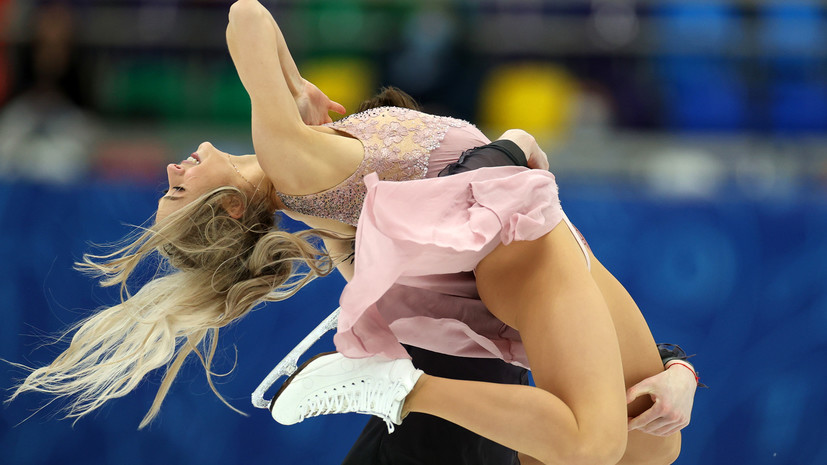The World Team Trophy, which kicks off in Osaka on Thursday, can be viewed in different ways.
For example, how to a commercial show event at the end of the season and an opportunity to earn extra money - this is exactly what the vast majority of foreign skaters do.
But you can take it quite seriously, announcing the tournament as a World Team Championship and a rehearsal of a similar one at the Olympic Games in Beijing.
This is exactly how, throughout the history of WTT, at least two countries refer to these competitions: Russia, which invariably sends the strongest to Japan, and the host country, which is logical: when the tournament was just conceived, its goal was to give Japan the opportunity to get its “home” big start , and with it - the opportunity to profitably present your "product" to the world.
Moreover, to show this not only to the audience, but also to potential sponsors.
It is interesting that the leaders of the Russian Figure Skating Federation (FFKKR) over the past years (and this season is no exception) in every possible way disowned the wording "World Team Championship" despite the fact that this is the name that sounds most often in relation to the WTT tournament.
Is this connected with the fact that Russia has been considered the favorite many times, but has never been able to achieve victory?
Maybe.
The tournament was won four times by the Americans, twice by the Japanese, while Russia managed to climb the podium only three times - in 2015, 2017 and 2019.
The most solid chance of winning looked before the Games in Sochi in 2013, but an accident happened there: Konstantin Menshov dropped out of the fight due to a fall and a serious shoulder injury.
Judging by the comments of experts, this year only victories are expected from Russian figure skaters.
The only paradox is that in our forecasts we traditionally look towards the United States, quietly rejoicing that the national team of this country, like some others, arrived in Osaka in a greatly weakened state, but the Japanese should really be afraid.
This is where pure mathematics counts.
It is clear that the representatives of the Land of the Rising Sun are not even theoretically capable of competing with Russia in dancing or pair skating, but they are unlikely to fall back to the last places.
This means that not so many points will lose so that the difference cannot be won back in single skating, where points will be awarded in eight solo performances against four in duet events.
The options here can be the most unpredictable in the sense that both Anna Shcherbakova and Elizaveta Tuktamysheva, as well as Mikhail Kolyada and Yevgeny Semenenko, are capable of both getting ahead of the Japanese counterparts and losing to them.
Moreover, neither one nor the other will become a sensation.
The fact that the WTT tournament is taking place on the eve of the Olympic season puts an additional burden on the skaters.
It is unlikely that this competition can legitimately be considered a rehearsal: the Olympic commander is a completely different story.
But each of the Russian singles, with the possible exception of Semenenko, has an additional load of his personal "cockroaches".
For Kolyada, this is the nightmare of the Olympic Games in Pyeongchang.
Many people are still firmly convinced that the team silver (read - defeat) lies entirely on the conscience of Mikhail.
And where, in this case, you can rehabilitate yourself, if not in Osaka?
Tuktamysheva's challenge is in the confrontation with the world champion Shcherbakova.
At the World Championships in Stockholm, it was obvious that Anna was experiencing serious problems with the quadruple flip (Lutz began to fail even earlier), which means that the basic complexity of Tuktamysheva's programs, if she does not facilitate seasonal content, may turn out to be higher.
The rest depends on the performance.
Well, Anna's challenge is in those very quadruple jumps that went wrong.
After finishing the season in the status of the world champion, but without the ultra-si, you can always be knocked out of the ranks of those who are on horseback.
And here, perhaps, lies the answer to the question: "Why does it not work out with the team format from year to year?"
Perhaps it is precisely because the commander is primarily a strategy.
Ability to count quickly and make quick decisions.
Do not take risks where you do not need to, and do not try to surprise anyone with throws on the embrasure.
To be not spiders in a bank, but a team that is like a wall that can cover, protect, or simply provide a shoulder to lean on when the ground leaves under your feet.
Will you say that I am exaggerating?
Not at all.
It is this tournament in Osaka that we all, perhaps, will remember when it comes to the Olympic team showdown.
Therefore, now I really want to just not miss the chance.

